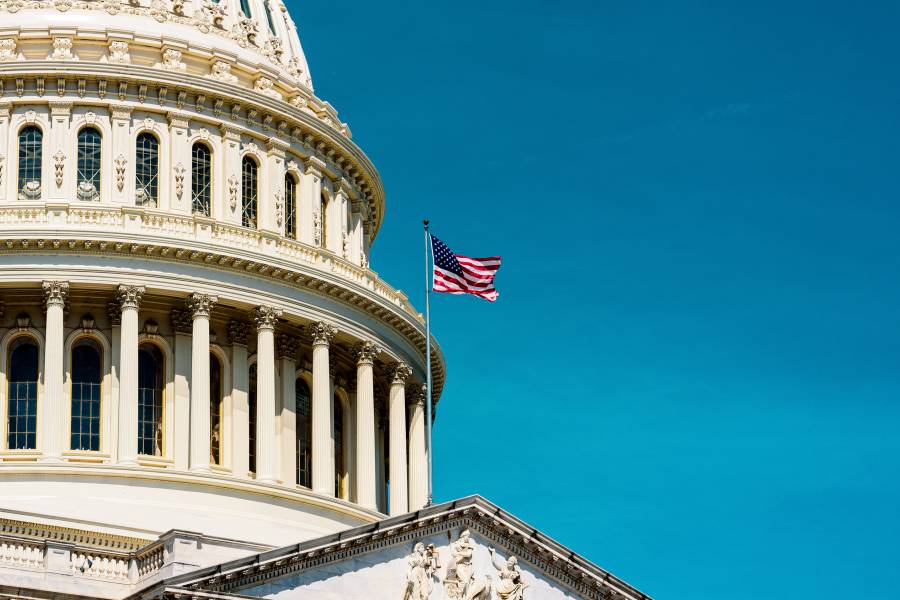- Name
- Carly Kempler
- ckemple2@jhu.edu
- Cell phone
- 443-812-8323
The share of U.S. adults who support an active government role in society increased by more than 40% during the initial pandemic response—up from 24% in September 2019 to 34% in April 2020—according to a new national public opinion survey conducted by researchers at the Johns Hopkins Bloomberg School of Public Health and the SNF Agora Institute at Johns Hopkins.
The survey, fielded April 7 through April 13, also found that among U.S. adults who endorsed a strong government role in society, a majority supported health, unemployment, and income-related policies aimed at bolstering the social safety net for vulnerable groups in society.
The findings, published online in the American Journal of Public Health, measured public support for social safety net policies during the initial outbreak of the novel coronavirus to assess how public support was associated with beliefs about the role of government.
Among the adults who supported a stronger government role, 88% supported two weeks paid sick leave, 80% supported increased minimum federal wage, 77% supported employment education and training as unemployment benefits, and 73% supported universal health insurance.
"Critical safety net policies passed in the initial phase of the pandemic are expiring or have expired, and finding common ground on extending them has proved difficult," says the lead author, Colleen L. Barry, professor and chair of the Department of Health Policy and Management at the Bloomberg School. "An awareness on the part of policymakers of heightened support for the government aiding individuals and families who have experienced pandemic-related dislocations could make a difference."
In the initial phase of the coronavirus outbreak in the U.S., 22 million individuals filed for unemployment benefits and an estimated 9.2 million lost their employer-based health insurance. On March 18, the U.S. Congress quickly passed the Families First Coronavirus Response Act, which is in effect through December 2020, and included paid sick days and other leave benefits related to COVID-19. The Coronavirus Aid, Relief, and Economics Security (CARES) Act offers tax credits to support worker retention and is in effect through Jan. 1, 2021. In addition, the CARES Act had increased unemployment benefits by an extra $600 per week through July 31, 2020, to workers affected by the pandemic. Efforts by Congress to extend these expanded unemployment benefits have repeatedly stalled.
The survey, fielded using NORC's Amerispeak Panel, drew from a nationally representative sample of 1,468 U.S. adults. The respondents were asked about their support for 11 safety net policies such as paid sick leave and universal health insurance; income support and unemployment policies; tax credits for businesses; and employment education and training.
The survey found that a majority of U.S. adults strongly supported seven of the 11 social safety net policies. Among the findings:
- 77% of adults supported employer-guaranteed two weeks paid sick leave
- 60% supported universal health insurance
- 58% supported increasing the federal minimum wage
- 52% supported extension of unemployment benefits
- 66% supported tax credits to businesses to retain and hire workers
- 68% supported employment education and training programs
- 71% supported public spending on construction projects like building roads or highways
The researchers found less support for single payer health insurance (47%), government-funded paid sick leave (39%), and government-funded family leave (48%). There was also less support for universal basic income, at 39%.
"As Congress debates continued relief for Americans suffering health and economic consequences from the pandemic, our data shows there is growing support for passing the kind of policies that they have been unable to pass in the last few months," says co-author Hahrie Han, director of the SNF Agora Institute at Johns Hopkins University.
Posted in Health, Politics+Society
Tagged politics, government, health policy, snf agora institute








